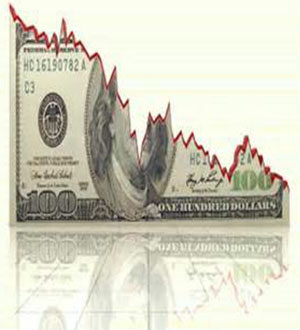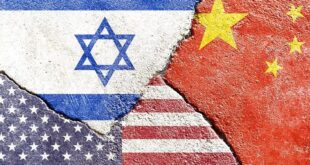There is not doubt that much remains to be done still, but we are fully aware of what to do, and how. I am talking about fundamental issues, which I already mentioned, first and foremost, the budget policy, maintaining macroeconomic indicators and the overall principles of macroeconomic policy. I am talking about our support for exports. Here, unfortunately, we are at the start of this path, but we understand what needs to be done in this direction as well.
I repeat, we are talking about supporting export. So if you come to Russia, the opportunities there extend beyond working in the Russian market. There are also options to work in third country markets through Russia. I want to stress, each of the segments of this plan is under our constant attention, jointly with Russia’s business community. We will continue to improve all these mechanisms.
QUESTION: Mr President, I am from the Beijing Chamber of Commerce. Our members include over 200 companies, particularly businesses engaged in the so-called upstream, in other words, oil exploration and extraction. We also accompanied the Chinese Prime Minister’s on his visit to Russia. We also plan to build production facilities and a research centre in Russia.
I have a question. You talked about direct transactions in rubles and yuan, the possibility of exchange. But the question is about liquidity – in other words, will it be possible to conduct such calculations more freely?
VLADIMIR PUTIN: You touched on a very important issue that concerns global finances and global energy. I believe that payments in national currencies, in any case, between such partners as China and Russia, are a very promising direction for our cooperation, which will help broaden our options for mutual trade and significantly influence global financial and energy markets.
We are currently examining a project for Chinese partners to join one of our major extraction companies with payments made in yuan. Of course, we must understand how we will use the extensive resources that the Russian partner will have when receiving Chinese national currency, but given that the Chinese economy is generating a great deal of goods that are in demand in the Russian goods market, we feel that such settlements are entirely possible.
Moreover, the Russian ruble has a number of advantages in that it is essentially a freely convertible currency, and as I said earlier, we are not going to restrict the movement of capital. Today, we are observing speculative jumps in the exchange rate, but I believe that this will end soon – I am referring to the actions that the Central Bank is taking in response to the actions of profiteers.
I must say that the events on the currency market that we are currently observing in Russia are absolutely unrelated to fundamental economic reasons and factors. All this will come into balance, but it is currently opportunistic in nature, and in the long-term, of course, calculations in rubles and yuan are very promising. This will mean that if we transition to such large-scale cooperation, the effect of the US dollar, say, on global energy, will decrease markedly.
In truth, this is not bad for the global economy, nor for global finances or global energy markets, nor for the dollar itself, because the more versatile payment options are available in this area, the more stable the situation will be in global finances and global energy. Ultimately, I think this can have a favourable effect on the dollar as a global reserve currency. Naturally, the dollar will later participate in exchange operations – this is true of the ruble and the yuan. So I think that this is a very good, entirely realistic perspective, and not a distant one; we will be able to see and hear this in the near future.
QUESTION: Mr President, my name is Yana, I represent a major Chinese investment project, the Greenwood Business Park in Moscow. We have already been working in Moscow, in Russia, for over 15 years. My question: how do you feel the successful experience of Chinese projects in Russia can be used to attract new Chinese investors?
VLADIMIR PUTIN: If you talk at forums like this one about your success in Russia, this will encourage others your partners and our friends to enter the Russian market and set up businesses there. What you just said is already an excellent advertisement for working in the Russian market. I would happily give you a hug. Thank you very much.
REMARK: Thank you. And in addition, I would like to say that currently, there are over 370 companies from 13 countries around the world working at the Greenwood Business Park. It would be our pleasure to invite you on an official visit to the Greenwood Business Park, a Chinese project.
VLADIMIR PUTIN: Thank you. I will certainly come visit.
QUESTION: Good afternoon, Mr President. I represent a Chinese company. I have two questions for you.
First, investment in Russia. All Chinese companies are still somewhat concerned, mainly over issues of law and order and safety in the streets. This is my first question.
The second question. Russia is a major producer of timber. There are still significant barriers in this area. How can Chinese companies gain access to the Russian timber market?
VLADIMIR PUTIN: First, regarding security, especially safety in the streets. I assure you that Russia is no more dangerous than any other country, including China, the United States or a number of European states.
Incidentally, today is November 10, and we are marking the professional holiday of employees of the Russian Interior Ministry. Therefore, this is a very timely question. Let us all congratulate them on their professional holiday, so they know that even here at the APEC Summit we are talking about the quality of their work. And let’s hope that their work continues to improve.
Thank you.
As for timber, the issue you are so interested in. I understand the subtext of your question. However, I am sure that you will also understand me when I say that any country (and Russia is no exception here) wants to have the raw materials produced on its territory to be processed there as well, so that the nation’s economy generates greater added value, new jobs are created and taxes are collected in Russia.
Therefore, our legislation has been making slow progress lately, considering our partners’ desire to buy round timber. However, the overall tendency is that we need to process timber on the territory of the Russian Federation, and we will continue working in this direction.
In response to your question regarding how to ensure the interests of foreign companies, including the interests of our friends in China, I would like to say that the answer is very simple: you can come to Russia and invest in timber processing facilities.
QUESTION (retranslated): Mr President, I head a company in China. We are involved in electronic trade, helping small and medium sized companies do business online. Therefore, regional cooperation is not an empty phrase for us, and my question has to do with it. We all know that regional cooperation is the focus of APEC’s efforts. How would you assess its current state and prospects?
Thank you.
VLADIMIR PUTIN: Are you referring to the state of online trade or our cooperation with China? I did not really understand your question.
REMARK: Since we help small and medium-size businesses, we would of course like to see regional cooperation within APEC develop. This would make our work easier, because electronic trade helps small and medium-size companies access world markets and receive funding.
VLADIMIR PUTIN: I see.
First, regarding regional cooperation. I believe this is a key area of our cooperation; moreover, cooperation between regions of the Russian Federation and regions of the People’s Republic of China is developing successfully. I won’t quote any numbers now regarding the growth of regional trade, but it is increasing day by day and year by year. We have established very good direct relations between the heads of Russian and the Chinese regions. This is a very good factor in favour of closer relations between companies.
Your professional question concerning online trade is also very important. We believe this is a significant segment of world trade, specifically for the development of small and medium-sized businesses. However, we proceed from the notion that in Russia taxation of this type of activity should not noticeably differ from the practices that exist in other countries.
True (I understand what you are hinting at), there is a discussion underway regarding the taxation that should be applied to electronic trade in the Russian Federation. The scope of electronic trade in Russia is large and keeps growing. The state should definitely maintain its interests and our fiscal policy should correspond to both the development of this segment of trade and its demands.
There is an issue we will have to resolve within the Customs Union and the Eurasian Union, which is to be launched on January 1, 2015. Your colleagues have already asked about it. We need to synchronise our tax rates, bearing in mind that if the tax rates in Kazakhstan, the Russian Federation and Belarus are different, all the businesses will move to the country with the lowest taxes.
We are working on this with our colleagues, but we must maintain a balanced approach to avoid any serious blows to business; moreover, we must retain favourable operating conditions for them, while protecting the state’s financial interests. We will make sure we make this known in advance. This will be a free, open discussion conducted, among other places, in the Parliaments of Russia, Belarus and Kazakhstan.
I know I should give my colleagues a chance to come to this stand. I would like to have a longer discussion with you on these and other issues; I know you have quite a few questions. I would like to thank you for your interest in this conversation with me as a representative of the Russian Federation. I invite you all to Russia and wish you all the best.
Thank you very much.

 Mouood Mouood English Edition
Mouood Mouood English Edition



